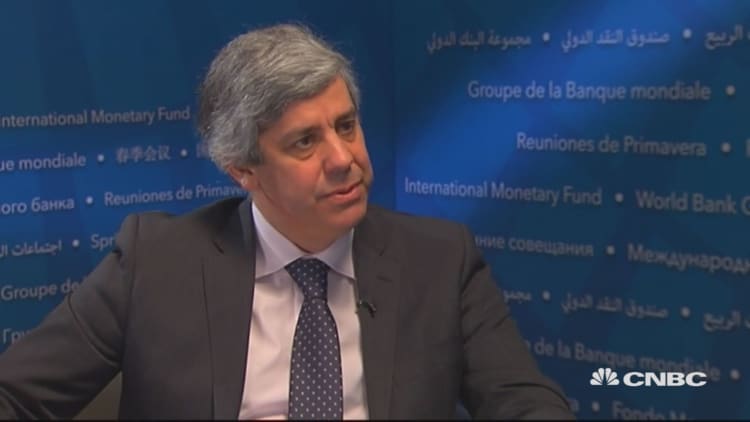
Fixed income, currencies and commodities trading declines hit Wall Street hard in a volatile first quarter.
Goldman Sachs reported first-quarter earnings Tuesday morning that while crossing a low bar also saw a 47 percent year-over-year drop in fixed income, currencies and commodities, or FICC, to $1.66 billion. It was part of a report that showed revenue growth tumbling 40 percent, from $10.62 billion from the year-ago period to $6.34 billion in the first three months of 2016.
With growing uncertainty on the horizon in the second quarter, the FICC struggle could continue. In part thanks to more central banks embracing negative interest rates, S&P Global Markets Intelligence equity analyst Kenneth Leon said more FICC pain could continue on Wall Street in 2016.
"If there were an area to come back, it would be equities trading first," he said.
Morgan Stanley said Monday its trading revenue from debt, currencies and commodities saw revenue plunge more than 50 percent to $873 million.
Equities trading also slid year-over-year at each bank, but not nearly as much.
Morgan Stanley said in its earnings report that the drop reflects "lower levels of client activity in rates and foreign exchange and a challenging credit environment," as well as the divestiture of commodity businesses.
Read More
Other banks that reported earnings last week saw their FICC desks plagued by similar problems. FICC desks' challenges stem from a number of issues to start 2016: their relative strong performance in the first quarter a year ago, central banks' maintenance of low interest rates and international instability.

JPMorgan Chase reported a decline of 13 percent in fixed income markets and Bank of America said last week it saw FICC fall 17 percent. Each saw equities trading businesses post a stronger quarter than their FICC businesses.
Bank of America CFO Paul Donofrio said he thinks the second quarter is starting off far better than the first, but that volatility still could remain ahead. The June 23 vote in the U.K. on whether to exit the European Union could again vex markets.
Read MoreBrexit makes for EU banking shakeup
"March felt, I think, a lot better than certainly January and February," Donofrio said last week on the bank's earnings call, adding, on the Brexit, "there's going to be volatility potentially around the vote and around any changes after the vote."
Citigroup also saw an 11 percent drop in fixed income markets trading from the previous year, the bank announced in its earnings. While Citi's FICC losses were lower than other banks', it saw greater losses in equities trading, an anomaly for the quarter.






